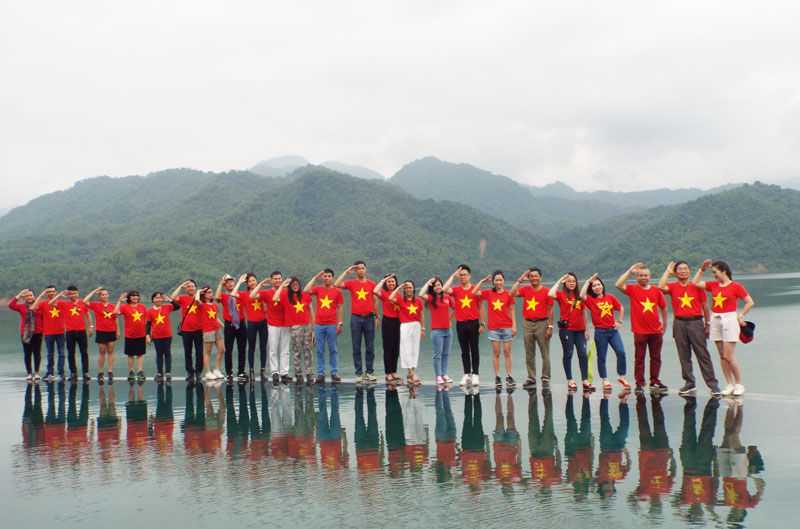
(HBO) – As the largest man-made lake in Southeast Asia, Hoa Binh lake has a poetic natural landscape with many small islands, which earns it the reputation as "Ha Long Bay on land.” The lake, which spreads across Hoa Binh city and four districts, is located inside the north’s key tourism area and a master plan to develop it into a national tourism site has been approved by the Prime Minister.

Mai Chau Hideaway tourism
site in Suoi Lon hamlet, Tan Mai commune, Mai Chau district, offers interesting
experiences to holidaymakers.
Hoa Binh province has adopted a thematic resolution and a specific
plan on tourism development around Hoa Binh lake, aiming to build services
meeting basic standards of a national tourism site by 2025. By 2030, the site
is expected to officially become a national tourism site equipped with synchronous
and modern technical infrastructure, with high-quality, diverse tourism
products. It is set to become the province’s biggest tourism centre and one of
the 12 key tourism zones of the northern mountainous region.
Many businesses have shown interest in investing in tourism around
Hoa Binh lake. Dai Doanh Company, for example, has scoped out Ngoi Hoa and Hien
Luong communes, and asked for permission from the province to compile a dossier
on investment in forestation in combination with leisure and eco-tourism in
Hien Luong commune.
Hanbek Company is considering a project on leisure tourism, with a cable
car system and entertainment facilities in Thai Thinh commune and Thai Binh
ward, Hoa Binh city.
Hoa Binh Tourism JSC is deploying a high-end leisure and eco-tourism
project in Sung island in Tien Phong commune, Da Bac district, which is
expected to welcome the first visitors in 2019 targeting the high-income
tourist segment.
The province hopes to attract investors to develop tourism products
unique to the locality such as spiritual tourism at Thac Bo Temple in Cao Phong
and Da Bac districts and Doi Co Temple in Hien Luong commune, Da Bac district,
along with high-quality leisure and eco-tourism in Sung island, Tien Phong
commune, Da Bac district, and community-based tourism in Ngoi, Tru, Ke and Da
Bia hamlets./.
Located just a 20-minute drive from Hoa Binh City, Ora Hill Farmstay & Glamping Hoa Binh is a captivating new destination nestled in Mo hamlet, Bình Thanh commune, Cao Phong district. Combining farming with leisure, this tranquil retreat is perfect for those seeking balance, joy, and an immersive experience in the expansive beauty of nature.
Muong Bi - Tan Lac is renowned as one of the four famous Muong regions in Hoa Binh province. Blessed by nature with a favourable climate and stunning landscapes, Tan Lac holds great advantages for tourism development. The local tourism industry has made remarkable strides in recent times thanks to the attention and support from the local authorities and sectors.
With its strategic location, well-developed transport network, and diverse soil and climatic conditions, Hoa Binh is emerging as a must-visit destination in Vietnam's northwestern tourism corridor. The province boasts numerous attractions, including the Kim Boi hot springs (Kim Boi district), the Dau Rong cave complex (Cao Phong), the Mai Chau valley (Mai Chau), and the iconic Hoa Binh hydropower plant.
The northern mountainous province of Hoa Binh has been listed among the 71 most beautiful places to visit worldwide by the prestigious US travel magazine Condé Nast Traveller.
Hoa Binh province’s rich natural and cultural resources position it as a prime location for developing community-based tourism (CBT). In recent years, support from central and provincial policies, as well as assistance from non-governmental organisations, have encouraged local ethnic minority and mountainous communities to actively engage in the sector.



